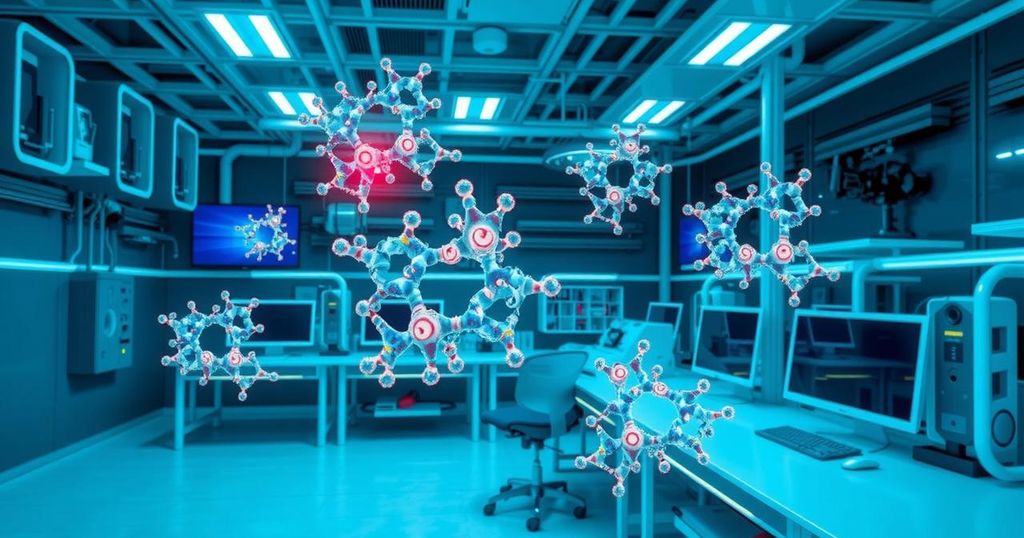Harnessing AI: The Future of Drug Discovery
Artificial intelligence is transforming drug discovery, greatly reducing development times and increasing accuracy in compound identification. This presentation from Crown BioScience reveals how AI optimizes workflows and experimental design while addressing regulatory complexities, highlighting key figures Jordan Lim and Kuan Yan who lead these initiatives.
Artificial intelligence (AI) is revolutionizing drug discovery, shifting from a support role to becoming a leading force in innovation. As biotech firms grapple with escalating research costs and extended development times, AI offers a solution—cutting drug development timelines by nearly 50% and enhancing the precision in identifying viable compounds. With global pharmaceutical R&D expenditures projected to exceed $230 billion by 2026, increasing efficiency is essential.
A thought-provoking question looms: Can AI transform drug discovery from random chance to a targeted, design-driven approach? Additionally, it’s crucial to consider the actual applications and limitations of machine learning in modern laboratories. In an episode of Crowncast by Crown BioScience, host Jonny McMichael chats with Kuan Yan, Senior Principal Scientist, and Jordan Lim, Associate Director of Digital Product, to uncover how AI is being deployed to automate lab workflows, refine molecular designs, and provide high-level insights—all within the maze of regulatory and data privacy challenges.
Several key highlights emerge: AI is not only speeding up early drug discovery phases—encompassing target identification to molecule optimization—but also significantly shortening development cycles. However, the human touch remains pivotal, particularly for quality assurance, validation, and managing the uncertainties associated with AI’s opaque decision-making process. Crown BioScience is actively crafting internal AI frameworks aimed at translating data into actionable insights and enhancing experimental workflows to provide exceptional value to clients.
Jordan Lim boasts a bachelor’s degree and an MBA from the University of California, San Diego, contributing a distinctive viewpoint from his experience in patient advocacy and digital transformation within Crown BioScience. Meanwhile, Kuan Yan, who has a master’s and PhD in bioimaging from the University of Leiden and over 15 years in machine learning, spearheads AI projects at Crown BioScience in the Netherlands, marking a significant leap in the incorporation of technology into drug discovery.
AI is fundamentally altering the landscape of drug discovery, enabling rapid advancements in research while maintaining essential human oversight. As the pharmaceutical sector invests heavily in R&D, AI promises not only efficiency but also precision in identifying compounds. However, the implications of AI depend on navigating its complexities, particularly regarding validation and quality control, signifying the importance of marrying technology with human expertise.
Original Source: marketscale.com




Post Comment